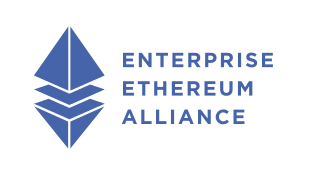Educating the Business Community About the Power of Ethereum
The Ethereum business ecosystem has seen rapid growth in recent years, which speaks directly to the technology’s value and relevance in today’s world. However, the only way to ensure that growth continues is to equip a wider range of business professionals with the education and tools necessary to begin building on Ethereum.
At the EEA, we put education front and center, and we’re working hard to arm businesses with the information, training and support they need to enter the Ethereum space and elevate their organizations with this valuable resource.
That’s why we’re so excited to share our series of educational primers, designed specifically for those new to the Ethereum ecosystem. These primers will offer introductions to many of the different concepts and facets of Ethereum (and blockchain as a whole) to help more professionals get started on the platform.
Is there a particular topic you think we should explore in an upcoming primer? We want to hear from you. Email us at [email protected] to share your ideas.
Watch our short introductory video to hear from EEA Executive Director Dan Burnett about the details and value of this program.
Welcome to Ethereum
What is Ethereum?
Ethereum is a global, open source blockchain platform that offers a native cryptocurrency and – through smart contracts – a secure, publicly available computing platform. It can be used as the basis for exciting new types of decentralized business models and new paradigms for solving business problems. To understand its potential, businesses will want to be conversant in a number of technical and non-technical topics.
Background
Ethereum is the second-largest blockchain in the world, behind Bitcoin. Like Bitcoin, it has its own native cryptocurrency, ether, and can be used for financial transactions. Unlike Bitcoin, Ethereum aims to be a global, decentralized, censorship-resistant, publicly available, trustworthy, general-purpose computing platform. To this end it also offers smart contract functionality, allowing users to run their own decentralized applications (dApps) on the blockchain.
How does Ethereum work?
Ethereum is a blockchain, which is a type of distributed ledger technology. It combines a number of existing technologies, including distributed computing and various forms of cryptography, with its own innovations to allow large numbers of strangers to transact as well as agree on and permanently record data and applications.
While the technology is complex, basic concepts include the fact that no one owns Ethereum, anyone can use Ethereum and all transactions and computations are validated collectively through transparent, auditable, code-based consensus mechanisms.
When getting into the details, we recommend non-developers focus on understanding the following key topics: how the network is structured, how transactions are made and validated (known as consensus), what a blockchain is and why data on it is immutable, what smart contracts are, how network fees are calculated and what tokens and digital assets are.
What can businesses do with Ethereum?
Because it is decentralized, Ethereum offers many new decentralized computing and data paradigms for solving business problems, coordinating business processes among multiple parties and developing new business models. After learning about the technology, businesses will want to understand these models and use cases.
There are many opportunities to use Ethereum to improve efficiency, automate processes and improve governance in their existing business. Decentralized business approaches also offer opportunities for new types of collaboration, new ways to share and protect data, new types of digital assets and new types of open markets and marketplaces, among many other things.
What else do I need to know?
Ethereum is not just about the technology and use cases. Other topics businesses will want to explore include:
- Sustainability. Historically, the Ethereum blockchain has used a lot of electricity to ensure security, and it has caught some environmental flack as a result. However, with the platform’s recent move from Proof of Work (PoW) to Proof of Stake (PoS), known as The Merge, this is no longer the case. The Ethereum Foundation estimates that The Merge has lowered the network’s energy usage by a massive 99.95%, putting an end to Ethereum’s environmental sust ainability challenges.
- Regulation. Regulation is the single most important non-technical factor affecting blockchain for business. But it is important to differentiate between cryptocurrency and blockchain-related regulation. While many governments are scrutinizing the use of cryptocurrencies, most jurisdictions understand and support the potential of blockchain-based digital assets and decentralized business models.
- Decentralization. In a decentralized business world, many basic assumptions about how business is conducted are turned on their head. WIthout intermediaries, processes can be more open, decisions more collective and users more empowered than many businesses are used to. Decentralization can also open new markets, and tokenization can make for new kinds of assets, but businesses need to be open to new mindsets.
- Ecosystem. Ethereum is not one thing but rather a vast and growing ecosystem, with different components provided by different individuals and organizations. Businesses will want to understand the different parts of the ecosystem, how they fit together, and how each is governed.
If the above seems like a lot, that is because it is! In our primer series, we will provide overviews and guides to all these topics and more.
About The EEA
The Enterprise Ethereum Alliance (EEA) enables organizations to adopt and use Ethereum technology in their daily business operations. The EEA
empowers the Ethereum ecosystem to develop new business opportunities, drive industry adoption, and learn and collaborate.
To learn more about joining the EEA, reach out to [email protected] or visit https://entethalliance.org/become-a-member/.

